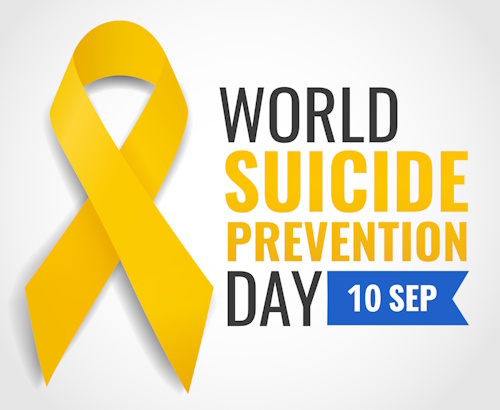BriggsAmasco, the UK’s largest and oldest roofing contractor, continues to lead the way in addressing the pressing issues of mental health within construction and roofing. It has always recognised that the industry has alarmingly high suicide rates and has invested heavily in providing mental health support for its staff. The company has now taken another major step forward with support for World Suicide Prevention Day, on September 10th.
Shockingly, recent statistics reveal that, on average, two construction workers take their own lives every working day, which is why the company has taken the opportunity to use World Suicide Prevention Day, to highlight this issue and underscore the support systems in place for its employees.
BriggsAmasco has always made significant investments in mental health support for its staff. The company takes pride in having two of its Area Safety Advisors fully trained as Mental Health First Aid Instructors and Mental Health Awareness Instructors.
These dedicated individuals continue to visit each of BriggsAmasco’s branches to conduct Mental Health First Aid courses for employees and refresher courses for those already trained. The company also offer offers Mental Health Awareness courses to all remaining employees without the First Aid qualification. Additionally, BriggsAmasco continues to promote its Employee Assistance Helpline, ensuring that both existing and new employees have access to vital mental health resources.
The harrowing statistics reveal that one in six construction-based workers face some form of mental illness. Perhaps even more alarming is the fact that suicide claims more lives in the construction sector than falls from height. These sobering numbers underscore the dire need for roofing companies and the industry as a whole to educate employees and provide unwavering support by recognising mental stress symptoms, both in themselves and in their colleagues. Such efforts are essential steps toward a full recovery from the debilitating effects of anxiety and depression.
The construction industry has long grappled with a stereotypical image of the macho male worker. Despite the significant influx of women into the industry, this perception has remained largely unchanged in recent years. Unfortunately, this image has far-reaching consequences for mental health, as men are more likely to bottle up feelings of anxiety and depression, contributing to an increase in mental health issues on building sites.
Just in case anyone is in any doubt, just look at the statistics. There were more than 13,000 suicides of construction workers in the UK between 2011 and 2015 according to the Office of National Statistics. This represented some 13% of the total workforce suicides in Britain – and to get this figure into perspective, construction workers as a whole only account for 7% of the working population.
BriggsAmasco’s commitment to mental health extends to every new employee, who undergoes a two-day induction at the company’s Birmingham head office. This comprehensive introduction includes a presentation and discussion on the company’s mental health strategy, ensuring that each employee has access to at least one mental health first aider both on-site and within its offices. The company boasts two Mental Health First Aid (MHFA) trained staff members, ready to deliver courses across the organisation.
Since March 2019, Briggs Amasco has trained 40 staff as mental health first aiders, with plans to increase this number in the coming year. Remarkably, even the company’s board of directors have undergone training in mental health awareness, highlighting the seriousness with which the company regards its staff’s psychological well-being. By tackling the longstanding taboo surrounding mental illness in the construction industry and through its robust education and training initiatives, BriggsAmasco is committed to ensuring its employees’ peace of mind.
As BriggsAmasco forges ahead in its mission to destigmatise mental health in construction, the company’s efforts serve as a beacon of hope. The statistics paint a stark picture of the challenges faced by the industry, but through proactive initiatives and unwavering commitment, there is light at the end of the tunnel.
The construction sector can no longer ignore the mental health of its workforce. By providing essential support, education, and resources, companies like BriggsAmasco are not only breaking stereotypes but also building a stronger, healthier, and more resilient industry for the future.

